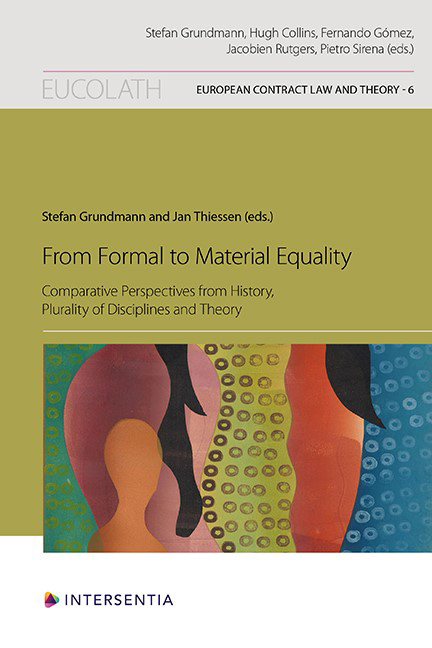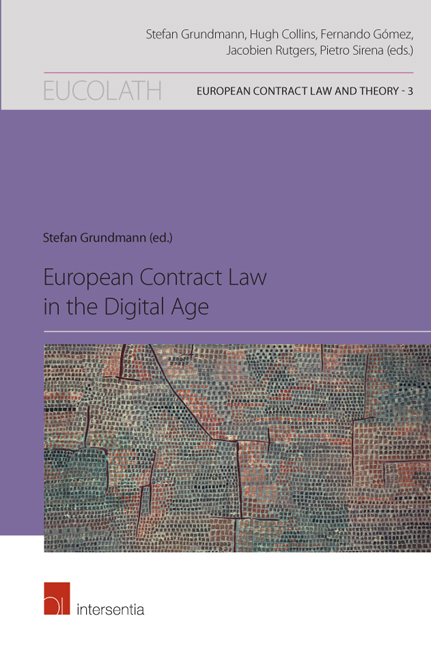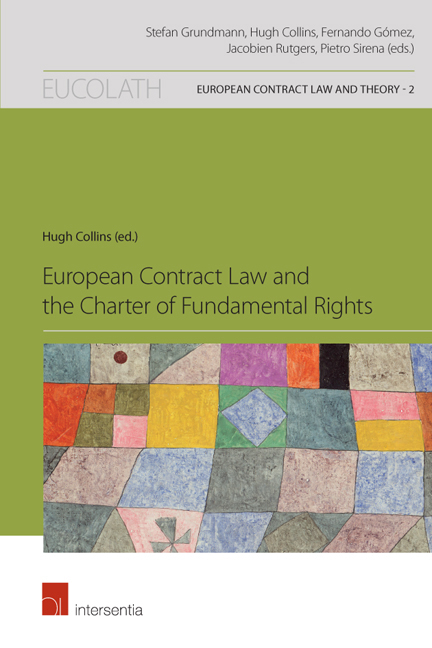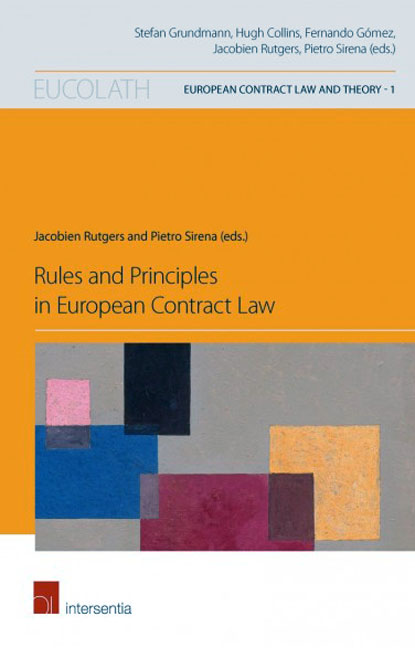5 results in European Contract law and Theory

From Formal to Material Equality
- Comparative Perspectives from History, Plurality of Disciplines and Theory
-
- Published by:
- Intersentia
- Published online:
- 15 November 2023
- Print publication:
- 12 January 2023

European Contract Law and the Creation of Norms
-
- Published by:
- Intersentia
- Published online:
- 25 May 2021
- Print publication:
- 02 March 2021

European Contract Law in the Digital Age
-
- Published by:
- Intersentia
- Published online:
- 11 October 2018
- Print publication:
- 09 February 2018

European Contract Law and the Charter of Fundamental Rights
-
- Published by:
- Intersentia
- Published online:
- 22 September 2018
- Print publication:
- 03 April 2017

Rules and Principles in European Contract Law
-
- Published by:
- Intersentia
- Published online:
- 28 November 2017
- Print publication:
- 15 June 2015

